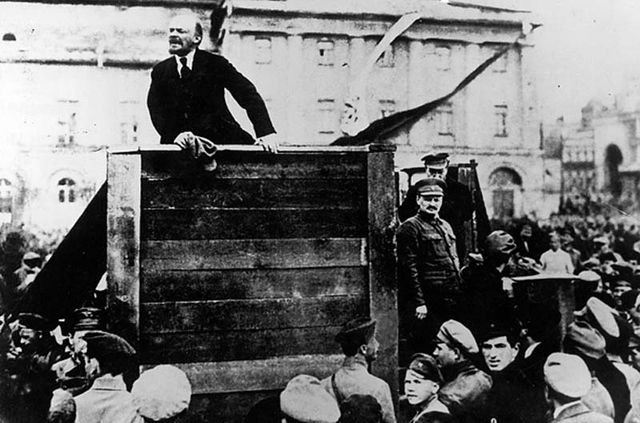Lecture Schedule

11 March 2017 • 5pm EST
Why Study the Russian Revolution?
The Russian Revolution of 1917 ranks among the most significant events in world history. One hundred years after the overthrow of the Tsarist autocracy and the coming to power of the Bolshevik Party, the bitter controversy that still surrounds discussion of the revolution testifies to its enduring impact and its intense political relevance.
The lecturer is David North, chairperson of the Socialist Equality Party (US) and the International Editorial Board of the World Socialist Web Site. The recording of his lecture is now available here, and the text is posted here.

25 March 2017 • 5pm EDT
The Legacy of 1905 and the Strategy of the Russian Revolution
The 1905 Revolution has entered into history as the “dress rehearsal” for the events of 1917. The lessons of 1905, the first great revolutionary upheaval of the twentieth century, formed the basis for the elaboration of Leon Trotsky’s theory of permanent revolution.
The lecturer is Fred Williams, translator of many Russian-language works of history and literature, and a long-time member of the SEP (US). The recording of his lecture is now available here, and the text is posted here.

8 April 2017 • 5pm EDT
World War and Revolution: 1914-1917
The eruption of World War in August 1914 arose out of deep-rooted contradictions in the capitalist nation state system. The opportunist leaders of the Second International repudiated the principles of international working class solidarity and endorsed the war. Against the background of the global conflagration, Lenin, emerging as the principal leader of the struggle against the betrayal of the Second International, insisted that the catastrophe of imperialist war was setting the stage for the eruption of world socialist revolution.
The lecturer is Nick Beams, a founding member of the Australian section of the International Committee and leading authority on the Marxist theory of imperialism. The recording of his lecture is now available here and the text is posted here.

22 April 2017 • 5pm EDT
Spontaneity and Consciousness in the February Revolution
The Romanov Dynasty, which had ruled for 300 years, was overthrown within five days by a massive revolutionary movement of the working class in the Russian capital of Petrograd. The violent entry of the masses into the making of history raised the central political question of the relationship between the apparently “spontaneous” outbreak of social revolution and the role of conscious political leadership.
The lecturer is Joseph Kishore, national secretary of the Socialist Equality Party (US). The recording of his lecture is now available here and the text is posted here.

6 May 2017 • 5pm EDT
Lenin’s Return to Russia and the April Theses
The sudden eruption of the February Revolution occurred while Lenin was living in exile in Switzerland. In his absence, the Bolshevik Party, led by Stalin and Kamenev, advocated support for the new bourgeois Provisional Government and for the continuation of Russia’s participation in the world war. This course was bitterly opposed by Lenin, who, after his return to Russia in a “sealed train,” launched an extraordinary struggle to reorient the Bolshevik Party toward the overthrow of the capitalist government by the working class. The adoption of the strategy of permanent revolution prepared the ground for the socialist uprising of October.
The lecturer is James Cogan, national secretary of the Socialist Equality Party (Australia). The recording of his lecture is now available here.
